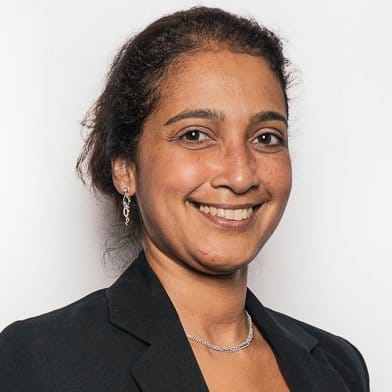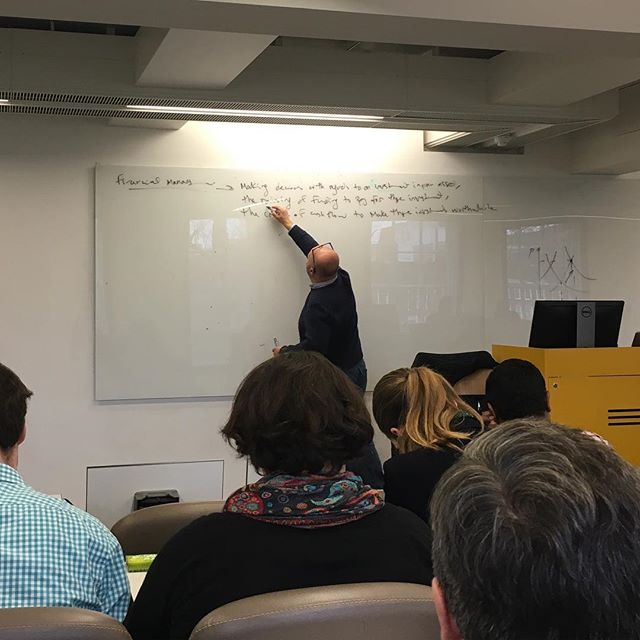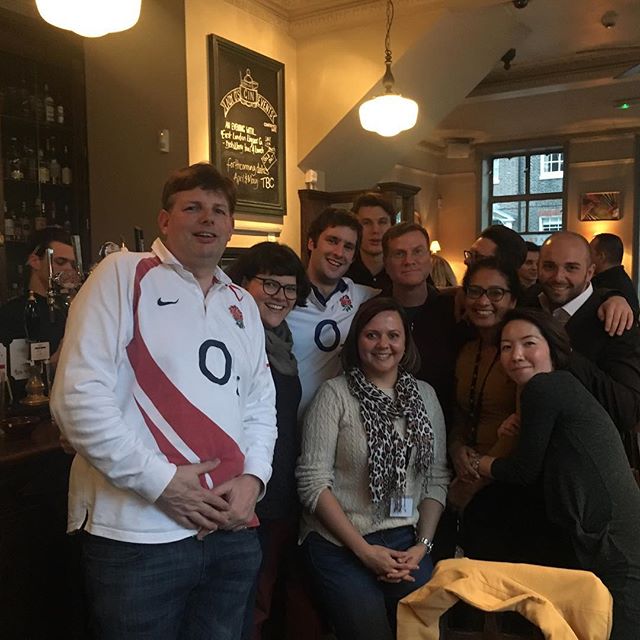

Why did you decide to do an Executive MBA?
Following an EMBA program is a unique opportunity to learn new theories, models and business concepts all while being able to continue working. It has given me the opportunity to apply what you’re learning almost immediately to my work. For me – I couldn’t dream of a more practical program.
What is a typical Executive MBA weekend like at Hult?
Our weekends on campus are usually over four days. During this time we focus on learning and sharing with colleagues. It is also a good opportunity to network – my colleagues on the program are very talented and intelligent professionals from different backgrounds.
Each weekend follows the same time schedule and is spent focusing on a specific course, such as Financial Management. The weekends include professor-led interactive classes as well as teamwork. Often we will have a team presentation to do on Monday morning which we start working on after class on Friday. Depending on the subject, and what is asked, the work can take the team anything from a few hours together during the evenings to working through the night!
How do you prepare for your weekends in class?
Each weekend is preceded by some preparation so we are ready for class. We have two weeks’ preparation time to submit an assignment related to the upcoming course. For example, to prepare for our Marketing course, we had to conduct some research interviews with people in our company and write an analysis of the findings. We also usually have some reading to do to ensure we are exposed to the key concepts – from key textbooks and relevant case studies through to related videos.
How is the EMBA weekend structured?
On Friday morning, before class, we meet for coffee and we catch up from last month – even though my cohort is in regular contact through WhatsApp, for me, it’s still great to catch up face-to-face.
Classes start at 9 am and we have a mid-morning break. We have lunch with class or teammates – sometimes we use lunch time to work on a presentation. As one of the HSA (Hult Student Association) representatives for my cohort, on Fridays, I have lunch with academic staff including our Dean. We give feedback from EMBA students and ourselves about the program and campus. I appreciate this activity as it is a way to participate actively in the development of the program.


We get back to work after lunch and classes finish at 5 pm. We then split into groups to work on the content for our Monday presentation. People are one of the great elements of the EMBA. Teams change every month so we get to work with everyone in our class – people from around the world and from a variety of industries. It’s this teamwork that teaches you a key lesson of how to adapt really quickly – key for global business. It is also when we put our communications, management and leadership skills directly into practice.
Do you have work to do after the weekend course is over?
Yes. We go home on Monday night and we have two weeks to submit a post-course assignment. Once I’m back to Paris I sleep for a couple of hours without any work to think about and give my brain a rest from the intensive learning!
Then it’s time to put into practice all the concepts learned during the weekend. An example of one of the post-course assignments was a company analysis in regards to its culture, leadership and management styles. I personally I like to take a break after the long weekend, before tackling my assignments and then I treat them like an extended exam: I commit to two, intensive 4- to 5-hour sessions for each assignment.
What do you do during your EMBA weekends when you aren’t studying?
In general, we arrive on Thursday night to get some rest before our weekend ‘marathon’ starts. If we arrive early enough that day we meet with the career development team, or members of the academic team.
In the evening, when we have time and are not too busy with coursework, we will go out for drinks or dinner with our group. For example last weekend we tried an interactive digital Japanese restaurant in Soho. You order from your table and you can play games. I’m a terrible battleship player but very good at catching flying balloons!
There are also regular events on campus. For example, last Friday after class we had a networking event with all the 1st and 2nd year EMBAs.




I come from Paris and many colleagues come from other countries. People from out of town test different hotels and accommodation and we share reviews and tips for where to stay the next weekend on campus.
How much time do you dedicate to the Executive MBA outside of the weekends?
My plan is to dedicate 8 hours each week to EMBA studying. However, often things don’t go to plan, so some weeks I do close to nothing and other weeks I study more than 10 hours. In one month studying for an EMBA requires a minimum of 20 hours outside of class. Ideally, to get the most out of the program and be well-prepared for the weekend it is better to dedicate double this. Or even more, if you can – it really is true that you get out what you put in!
After the assignment is submitted, we stress (a little) for a couple of weeks whilst waiting for our grades. We are all very committed to the program. So even if we go on holiday, in general, we keep on working. I’m lucky to have support from my family – they are always there to help distract me with something fun before concentrating again!
In summary, in 4 days EMBAs experience what full-time MBAs live in 8 weeks. It is challenging, but in return I get to see the immediate benefit of being able to apply so much of what I studied straight into my professional work.
Step up your game with executive education at Ashridge agile business school. To find out more, take a look at our blog Reflections from an EMBA grad, or firm up your exec career footing with a Masters in International Business from Hult. Download a brochure or get in touch today to find out how Hult can help you learn everything about the business world, the future, and yourself.

